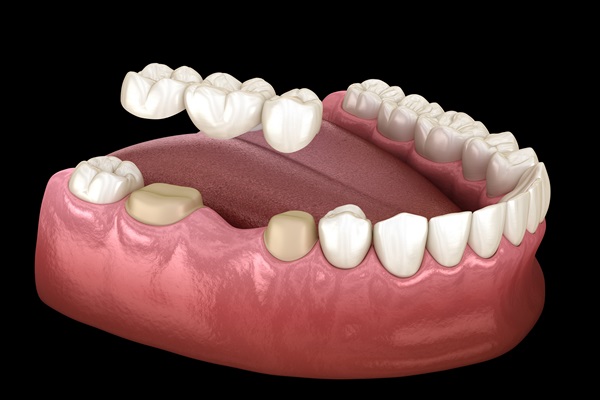Are You a Candidate for Dental Bridges?

A dental bridge is a valuable solution for individuals with missing teeth, providing functional and aesthetic benefits. If you are considering dental bridges to restore your smile, you will need to determine whether you are a suitable candidate for this treatment.
How to determine if dental bridges are right for you
Let us discuss the factors that determine whether a patient is a suitable candidate for dental bridges, providing insights into the considerations that influence this treatment choice.
Missing teeth
The most straightforward criterion for being a candidate for dental bridges is having one or more missing teeth. Dental bridges are meant to "bridge" the gap created by missing teeth, restoring one's ability to chew, speak, and smile with confidence.
Good oral health
Candidates for dental bridges should generally have good oral health. This includes healthy gums and adjacent teeth. If a patient has underlying oral health issues, such as gum disease or extensive decay in adjacent teeth, these must be addressed and resolved before proceeding with dental bridge placement.
Stable adjacent teeth
Dental bridges rely on adjacent teeth (known as abutment teeth) for support. To be a suitable candidate, a patient needs to have stable and healthy teeth on either side of the gap, as these will serve as anchors for the bridge. The condition of these teeth, along with their strength and structure, is a significant consideration.
Commitment to oral care
Candidates for dental bridges should be committed to maintaining good oral hygiene. This includes regular brushing, flossing, and dental check-ups. Proper care will ensure the longevity of the bridge and the health of the supporting teeth.
Overall health
The patient's overall health is vital in determining their candidacy for dental bridges. Some medical conditions or medications can impact the success of the procedure. Patients will need to discuss their medical history and any current medications with their dentist to assess their potential effects on the treatment.
Dental bridge type
Dental bridges come in various types, such as traditional, cantilever, Maryland, and implant supported. The type of bridge recommended will vary depending on the patient's specific case. The dentist will assess their needs and determine the type of bridge that most suits them.
Treatment preferences
The patient's preferences and expectations play a role in determining whether they are a candidate for dental bridges. They should clearly understand the treatment process, including potential alternatives, costs, and long-term maintenance requirements.
Cosmetic enhancement
In addition to their functional benefits, dental bridges can serve a cosmetic purpose. If a patient has concerns about the appearance of their smile due to missing teeth, they may be an ideal candidate for a dental bridge. Candidates seeking to regain their self-confidence by achieving a complete and natural-looking smile often find a dental bridge to be an excellent solution.
Schedule your consultation with our dental bridges team
If you are missing teeth and meet the aforementioned criteria, you are likely a candidate for dental bridges. To determine the best treatment plan for your unique situation, it is essential to consult a qualified dentist who can assess your oral health, discuss your goals, and guide you through the process of getting dental bridges. Contact us today to schedule your consultation.
Request an appointment here: https://www.dentistart.com or call Dentistart at (954) 317-1798 for an appointment in our Coral Springs office.
Check out what others are saying about our dental services on Yelp: Dental Bridge in Coral Springs, FL.
Related Posts
When it comes to restoring damaged or weakened teeth, dental crowns provide an effective and lasting solution. Dental crowns are custom-made caps placed over a tooth to restore shape, size, strength, and appearance. Understanding the different types of dental crowns available can help patients make informed decisions about their dental care.Porcelain crowns are crafted entirely…
While orthodontics is a dental specialty, many general dentists offer orthodontic treatment alongside traditional dental services. This is due to the fact that the appearance and health of one's teeth are connected. A general dentist who offers orthodontic services will have the necessary training and education to address minor to moderate orthodontic treatment, allowing patients…
Dental restorative procedures like implant supported dentures can be a solution to partial or complete teeth loss. No one wants to lose a tooth, but you may experience it due to situations beyond control. In addition to transforming your smile, the procedure can boost your self-esteem and have your teeth functioning fully in no time.An…
Emergency dentistry can tell you a lot about tooth pain. They can tell you what the cause is, how to treat it, and what to do to prevent it in the future. Tooth pain is typically a sign there is something wrong with a tooth. The pain typically lingers until the root cause of it…
